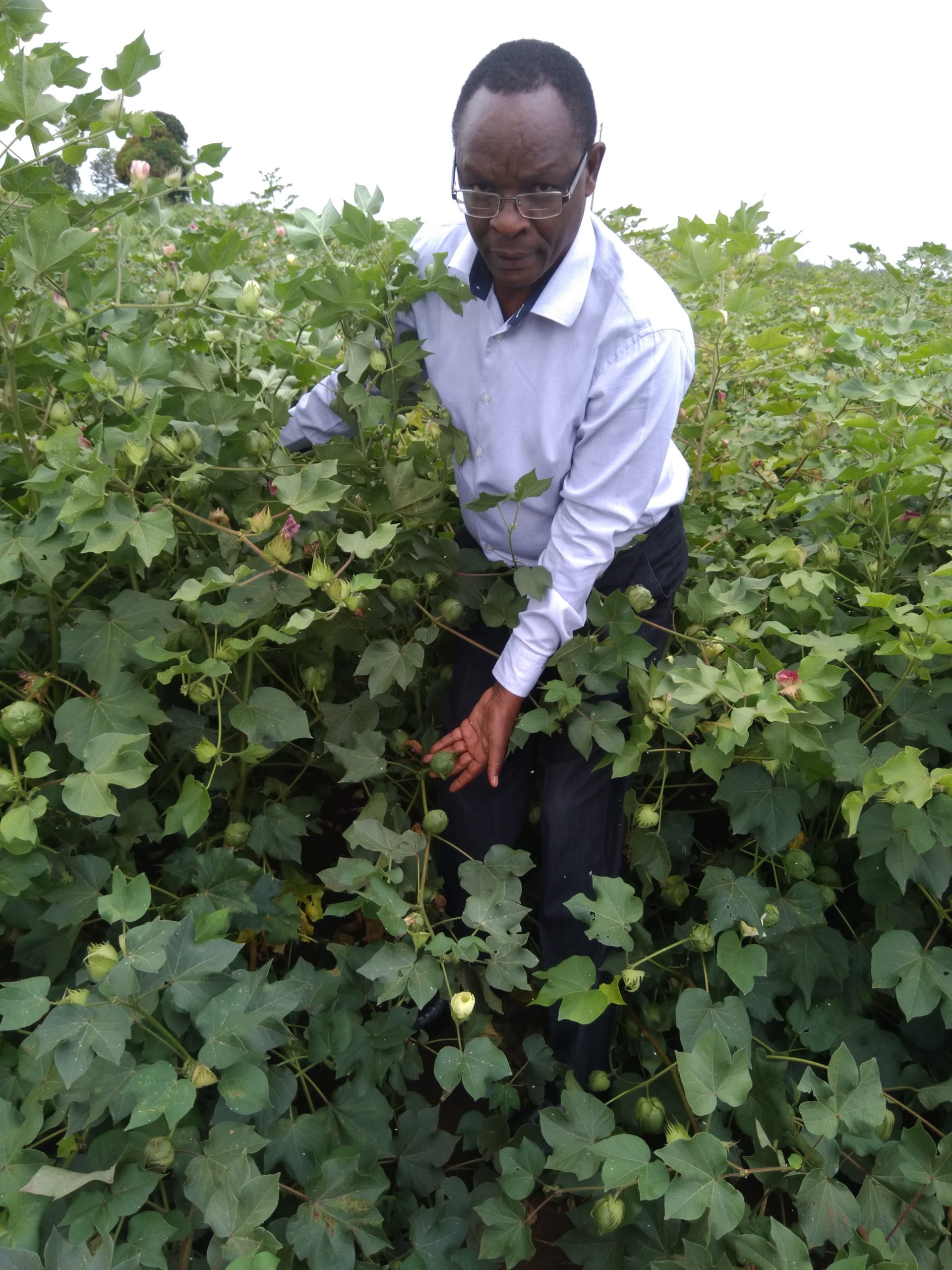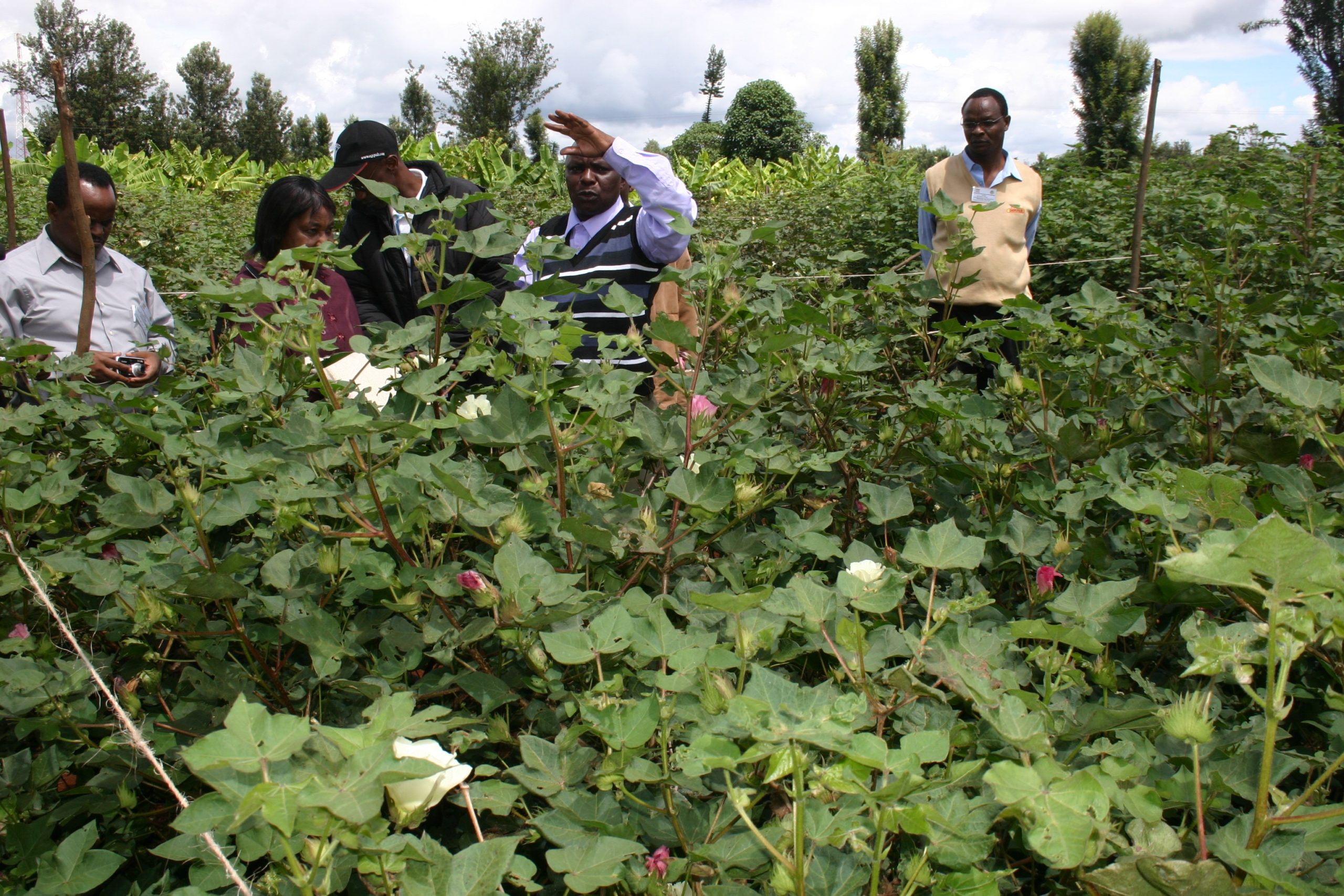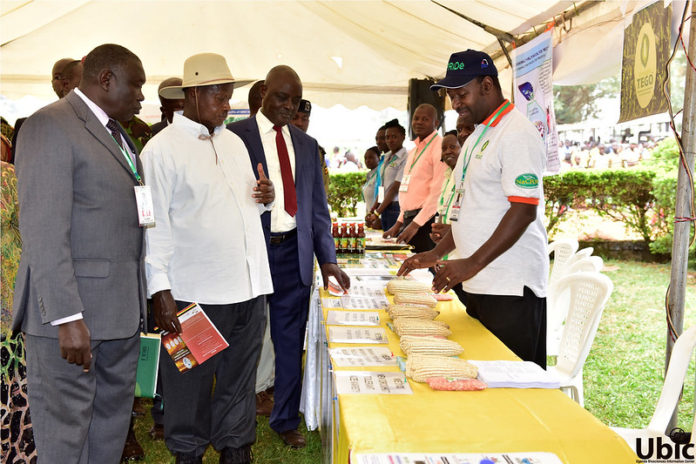By Wahinya Henry
Kampala, Uganda: Uganda has assured experts and stakeholders of her commitment to the promotion of biotechnology. President Yoweri Museveni initially declined to append his signature to a critical bill meant to regulate science in the country.
The legislation that has remained stalled is an enabling law for the safe development, research, and release of biotechnology including Genetically Modified Organisms (GMOs) into the environment.
Parliament passed the Genetic Engineering Regulatory Bill, 2018. It was a dramatic reversal from when the first Bio-safety Bill was passed on Oct. 04, 2017.
That was celebrated by the scientific community of researchers but civil society activists did not want it. They were happy when the President declined to assent to it and returned it to parliament.
In a letter addressed to the Speaker of Parliament, Rebecca Kadaga, in December 2017, Museveni insisted on a change in Bill’s title, provisions on patent rights on indigenous farming products, and sanctions for scientists who mix GMOs with indigenous crops and animals.
President Museveni returned the bill to parliament over environmental concerns but the house did not have time to debate the bill after parliament was dissolved and the country headed for the general elections.

The debate over the action was swift within the East African region after he failed to sign into law of Uganda’s Genetic Engineering Regulatory Act (GERA).
The legislation is meant to establish a regulatory mechanism intended to provide a safe and responsible framework to guide agri-related scientific research on various crops toward the attainment of sustainable food security.
Ordinarily, upon passage of laws that provide for scientific research, the next logical step is the development of enabling regulations that guide the implementation of amongst others – Conducting Confined Field Trials and Environmental Release guidelines prior to the release of Genetically modified (GM) products.
The decision taken by President Museveni sent mixed reactions from proponents and anti-science crusaders.
Fears escalated in countries in East Africa that have made major strides in biotech or genetic engineering (GE) research President Museveni has sent a wrong signal.
Reacting, Tanzania-based researcher, Prof. Suleiman Juma said: “Countries that have adopted the technology and achieved strides towards commercialization of Genetically Modified products can be influenced to re-think their decisions,”
The decision casts doubt within the wider East African region about benefits of the science in the minds of ordinary people, said Prof. Juma.
Kenya Medical Research Institute (KEMRI) research on sabbatical leave, Dr. Peter Mokaya hailed the decision by President Museveni, demanding adoption of a Precautionary Principle approach to living modified organisms is the Bio-safety approach.
He says the responsibility of ensuring safety rests with the patent owner of the germplasm by conducting requisite safety assessments.
 This will include concerns on avoiding contamination of related non-GMO natural wild species and harm to non-target organisms, including pollinators like bees and butterflies, and health concerns, both short term and long term, and more, lately, inter-generational damage.
This will include concerns on avoiding contamination of related non-GMO natural wild species and harm to non-target organisms, including pollinators like bees and butterflies, and health concerns, both short term and long term, and more, lately, inter-generational damage.
Dr. Mokaya says before rushing to release these unnatural labs tinkered with patent-owned breeds, there is a need for the Strict Liability Clause to be observed and be part of the conditions for commercialization.
In his opinion, there was no crime committed when President Museveni declined to pen his signature to the law because there is a need to recognize that these GMO varieties, other than their own safety concerns, come as a package with toxic agrochemicals, like Roundup.
“The chemicals have their own toxic concerns and harm to human health, now including inter-generational damage. There is a need for independent local research to verify purported safety assessment findings from sources without vested interests, like KEMRI.
Dr. Mokya terms this as necessary in the case of BT Cotton, since, more than 60 percent of the BT cotton products will enter the food and feed chain.
Expert Jimmy Kiberu was optimistic despite the setback:
“Momentum for the adoption of biotech crops is growing steadily across Africa as new adopters leverage experiences of other regions that have successfully embraced cultivation of biotech crops around the world.
According to Kiberu, African countries such as Malawi, Ethiopia, Burkina Faso, Eswatini (Swaziland), and Sudan have all approved GM cotton, and most recently Nigeria has approved the commercialization of biotech crops (cotton and cowpea) joining the growing list of countries that adopted biotech crops like South Africa.

Kenya has approved BT cotton for commercialization, he said as strides have been made in the development of a cassava variety resistant to disease and BT maize commercialization.
But Uganda’s Minister for Agriculture, Animal Industry and Fisheries Hon. Fred Bwino has assured experts and stakeholders of the commitment by Uganda to support biotechnology and blamed the election period last year for the delay to pass the necessary law
He expressed a strong commitment to support biotechnology and optimize its benefits to improve livelihoods and contribute towards the achievement of national development goal.
This emerged as one of the key deliberations during a recent Africa Biennial Bio-sciences Communication Symposium (ABBC2021)
“Uganda has realized the importance of building the human capacity to ensure that the country has the requisite human resources to exploit the immense potential of bio-sciences,” Bwino revealed.
The Minister said the Government will continue to work with the responsible ministries and agencies including the Ministry of Agriculture to resolve pertinent issues around the regulation of biotechnology and bio-safety.
“This will enable the establishment of a conducive environment for biotechnology research and development so that we are able to maximize the benefits of these technologies as a country,” he said.
Bwino applauded efforts by ABBC 2021 organizers saying the Symposium provides a platform for strengthening bio-sciences and bio-safety communication and consolidating the role of modern bio-sciences for development in Africa.
The theme of the Symposium was ‘Accelerating Africa’s Biotech Tipping Point: Taking Stock and Celebrating the Gains’.
Delegates made a clarion call for stronger scientific collaboration and more robust public-private partnerships in order to realize optimum success in the crop biotech sector on the continent.
Dr. Joyce Maling’a, Director of the National Food Crops Research Institute at Kenya Agricultural and Livestock Research Organization (KALRO) decried the lack of cooperation among scientists in implementing biotech research. “It is time that as a continent, we come together and consolidate our efforts to ensure the success of the biotech sector,” she said.














